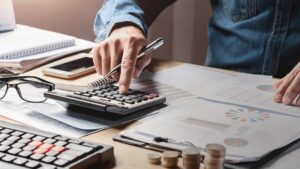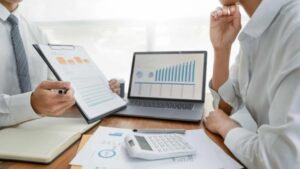
Learn how to effectively manage your personal finances using a ledger. This comprehensive guide covers step-by-step instructions, tips, and FAQs on how to use a ledger for personal finance.
In the fast-paced world of personal finance, keeping track of your income, expenses, and financial goals can sometimes feel overwhelming. That’s where a ledger comes into play. A ledger is a powerful tool that helps you maintain a clear and organized record of your financial transactions, allowing you to make informed decisions and achieve your monetary objectives. In this article, we’ll explore how to use a ledger for personal finance and provide valuable insights to help you take control of your financial journey.
How to Use a Ledger For Personal Finance
Using a ledger for personal finance involves several essential steps that contribute to effective financial management. Let’s delve into the process:
Setting Up Your Ledger
To begin, acquire a ledger or create a digital spreadsheet for recording your transactions. Label columns for date, description, income, expenses, and balance. This initial setup ensures your ledger is structured and easy to navigate.
Recording Transactions
Regularly record every financial transaction, whether it’s income from your job, rental property, or side hustle, or expenses like rent, groceries, and entertainment. Accurate and detailed entries are crucial for a comprehensive overview of your financial situation.
Categorizing Transactions
Group your transactions into categories such as housing, transportation, food, entertainment, and savings. This classification provides insights into spending patterns, enabling you to identify areas where you can cut back or allocate more funds.
Calculating Balances
After each entry, update the balance column by adding the income and subtracting the expenses from the previous balance. This real-time tracking helps you understand your available funds and make informed spending decisions.
Setting Budgets and Goals
Use your ledger data to establish realistic budgets for different categories. Allocate funds according to your priorities and financial goals, whether it’s saving for a vacation, paying off debt, or building an emergency fund.
Analyzing Trends
Regularly review your ledger to identify trends in your spending habits. Are there consistent overspending areas? Are you consistently under-budgeting in certain categories? Adjust your financial strategies accordingly to stay on track.
Utilizing Advanced Ledger Techniques
As you become more proficient in using a ledger for personal finance, consider integrating these advanced techniques:
Implementing Double-Entry Bookkeeping
Double-entry bookkeeping involves recording each transaction twice: once as a debit and once as a credit. This method provides a more comprehensive view of your finances, reducing the risk of errors and ensuring accurate balances.
Forecasting and Projection
Utilize your ledger data to create financial forecasts and projections. Estimate future expenses, incomes, and savings based on historical data, helping you plan for major purchases or investments.
Reconciling Accounts
Regularly reconcile your ledger balances with your bank statements. This process ensures the accuracy of your recorded transactions and helps you identify any discrepancies or fraudulent activities.
FAQs about Using a Ledger for Personal Finance
Can I use digital tools instead of a physical ledger?
Absolutely! Many individuals prefer digital spreadsheets or personal finance apps to maintain their ledger electronically. The key is to choose a method that suits your preferences and habits.
Is a ledger suitable for small businesses?
Yes, a ledger is an invaluable tool for small business owners to track their financial activities. It helps monitor cash flow, expenses, and profits, contributing to informed business decisions.
How often should I update my ledger?
Frequent updates are essential for accurate financial management. Aim to record transactions on a daily or weekly basis to ensure your ledger reflects real-time financial data.
Can I use a ledger if I’m not a financial expert?
Absolutely! Ledgers are designed to simplify financial tracking. You don’t need to be a financial expert to benefit from using a ledger for personal finance. It’s all about organization and consistency.
Are there any drawbacks to using a ledger?
While a ledger is a powerful tool, it requires commitment and diligence to maintain accurate records. Falling behind on entries could lead to incomplete financial insights.
Can I customize categories in my ledger?
Certainly! Tailor your ledger categories to align with your spending habits and financial goals. Personalization enhances the effectiveness of your financial tracking.
Conclusion
Mastering the art of using a ledger for personal finance can significantly enhance your financial well-being. By diligently recording transactions, categorizing expenses, and setting budgets, you’ll gain valuable insights into your financial habits. Whether you opt for a traditional paper ledger or a digital version, the key is consistency. As you become more adept, consider exploring advanced techniques like double-entry bookkeeping and financial forecasting. With your newfound knowledge, you’re empowered to make informed financial decisions and work towards your monetary aspirations.






